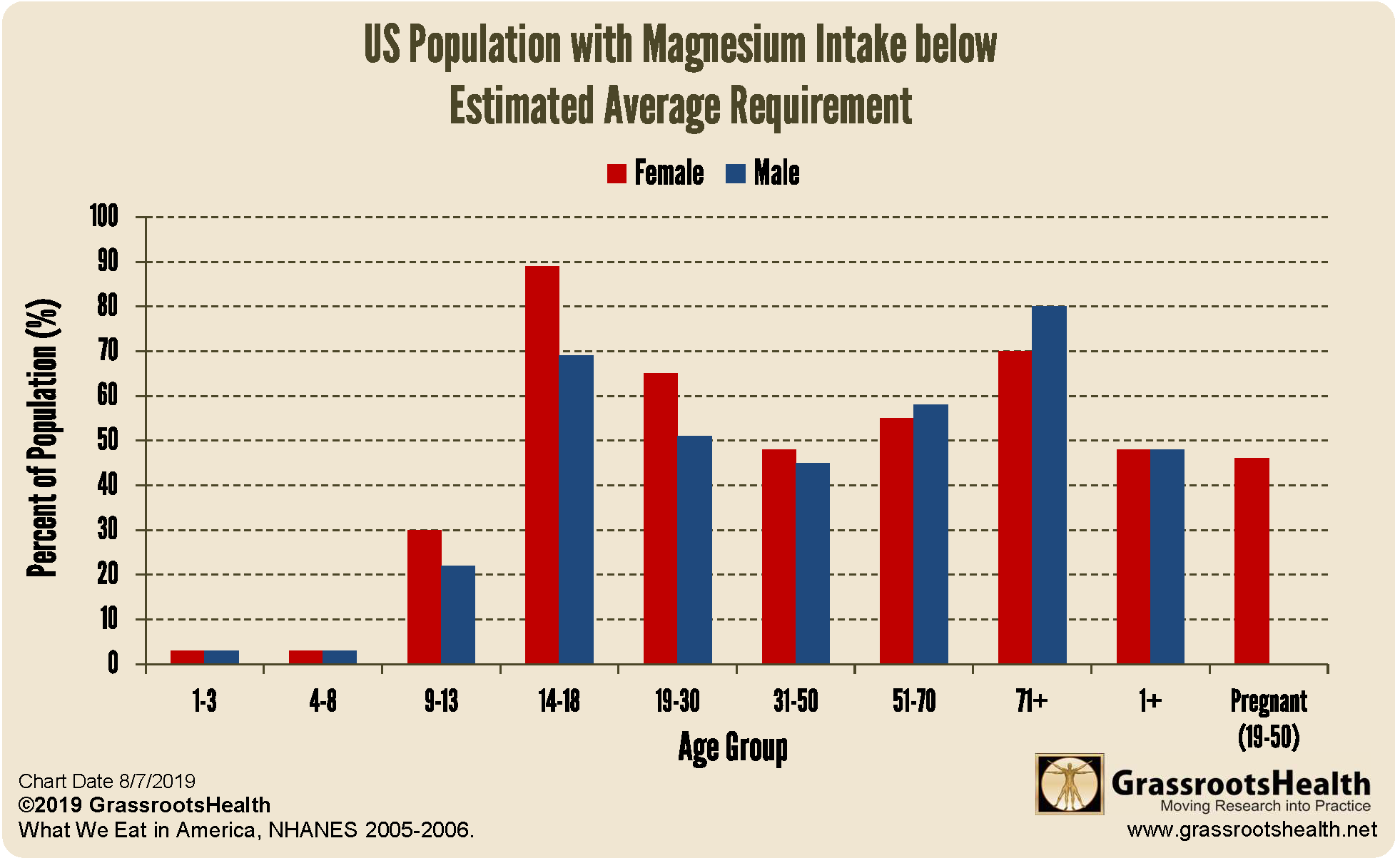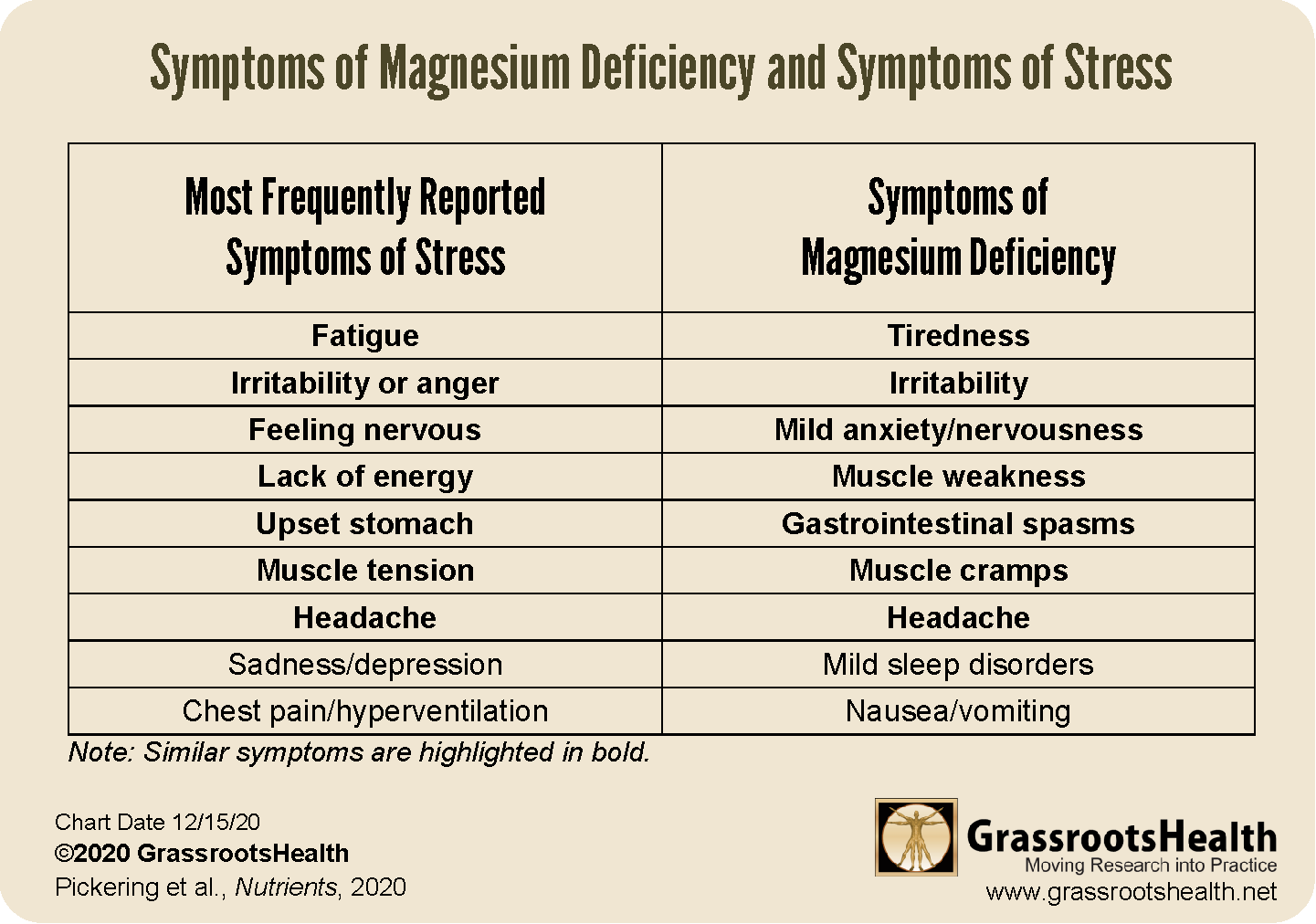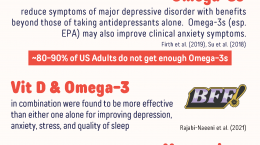Published on June 21, 2024
Studies show magnesium deficiency can induce symptoms and increase susceptibility to stress, and acute and chronic stress can precipitate magnesium deficiency
 The body relies on nutrients for thousands of biological reactions within the body, including those involved in the response to stress. Zinc and copper have been shown to play a role, as have omega-3 fatty acids and vitamin D.
The body relies on nutrients for thousands of biological reactions within the body, including those involved in the response to stress. Zinc and copper have been shown to play a role, as have omega-3 fatty acids and vitamin D.
Magnesium is another nutrient that seems to have a major effect on stress, in part due to its role in the operation of over 300 enzymes. Our last post discussed a review assessing the benefits of magnesium supplementation on both sleep and stress. Another previous post reviewed the results from a clinical trial assessing whether magnesium supplementation could improve depression and anxiety symptoms. Within two weeks, participants supplementing with magnesium demonstrated a significant improvement in depression and anxiety symptoms, whereas no improvement was seen in those without magnesium supplementation. Another study looked at individuals with moderate to severe stress to see how treatment with magnesium or magnesium plus vitamin B6 affected perceived stress levels – rapid and significant reductions in stress were found for all those taking magnesium. There was a 24% greater improvement in stress in the magnesium with vitamin B6 group for those who had severe or extremely severe stress.
Magnesium Plays a Key Role in Stress Regulation
Studies have shown that magnesium concentrations within the central nervous system are prioritized over other areas of the body, indicating that magnesium is essential for brain function. Serotonin, or 5-HT, is a hormone that helps stabilize mood and produces feelings of well-being. It impacts the entire body, with effects on sleep and digestion, as well as stress. Magnesium enhances the interaction between serotonin and its membrane receptors, therefore promoting the transmission of serotonin signaling. Magnesium is also involved in the synthesis of serotonin and the inhibition of stress-inducing molecules such as glutamate and cortisol.
Magnesium helps protect from the negative effects of oxidative stress that may occur due to chronic stress. In fact, a previously reviewed study showed that magnesium supplementation helped to protect DNA from damage due to oxidative stress and inflammation resulting from extreme physical stress.
The Magnesium and Stress “Vicious Circle”
Studies such as those mentioned above support the fact that magnesium plays a protective and regulatory role during the stress response. During times of acute and chronic stress, a decrease of magnesium levels within the body along with an increase in excretion of magnesium in the urine has been observed. In cases of repeated or long-term stress, magnesium may be used-up and levels depleted, leading to a state of magnesium deficiency, and therefore, a compromised stress response.
This observation, as described by Pickering et al., is known as the magnesium and stress vicious circle – the concept that stress increases magnesium loss and can lead to deficiency, while magnesium deficiency in turn enhances the body’s susceptibility to stress. The recommendation that magnesium intake should be increased during increased times of stress is based on this bidirectional relationship between stress and magnesium.
Unfortunately Over Half of Americans Do Not Get Adequate Magnesium
There has been an estimated decline of magnesium intake in the United States over the last 100 years, from approximately 500 mg/day to 175-225 mg/day. A National Health and Nutrition Examination Survey (NHANES) 2005-2006 (the most recent for which this set of information is available), based on dietary recall and did not include nutrient intake from supplements, was conducted to determine the intake of specific nutrients through the diet. The chart below illustrates the findings from this survey, based on the comparison of magnesium intake from food and water to the Estimated Average Requirement (EAR) of magnesium. The EAR is the estimated amount of a nutrient’s daily intake needed for half of the healthy population to meet their daily requirements, broken down by age and gender – similar to the RDA, although the amounts referred to are lower. Nearly half of all individuals 1 year and older and more than two thirds of teenagers (ages 14-18) and elderly adults (ages 71 and over) had inadequate magnesium intakes when compared to the EAR.
Similarities between Symptoms of Stress and Magnesium Deficiency
With the above taken into consideration, it makes sense that magnesium deficiency and stress exhibit similar symptoms. The table below outlines some of the top symptoms of stress and magnesium deficiency, with the most common being fatigue, irritability, and mild anxiety.
Ensure Healthy Magnesium Levels to Help Combat the Effects of Stress
Stress is only one of several factors affecting magnesium balance in the body, making it important to test your magnesium levels. Co-factors, especially vitamin D, are also important to measure. Do you know what your status of vitamin D, magnesium, and other essential nutrients is? Could your levels be improved? Test now to find out!
Are You Getting Enough Vitamin D, Magnesium, Omega-3s, and Other Important Nutrients?
 Having and maintaining healthy vitamin D levels and other nutrient levels can help improve your health now and for your future. Choose which additional nutrients to measure, such as your omega-3s and essential minerals including magnesium and zinc, by creating your custom home test kit today. Take steps to improve the status of each of these measurements to benefit your overall health. With measurement you can then determine how much is needed and steps to achieve your goals. You can also track your own intakes, symptoms and results to see what works best for YOU.
Having and maintaining healthy vitamin D levels and other nutrient levels can help improve your health now and for your future. Choose which additional nutrients to measure, such as your omega-3s and essential minerals including magnesium and zinc, by creating your custom home test kit today. Take steps to improve the status of each of these measurements to benefit your overall health. With measurement you can then determine how much is needed and steps to achieve your goals. You can also track your own intakes, symptoms and results to see what works best for YOU.
Enroll in D*action and Test Your Levels Today!







